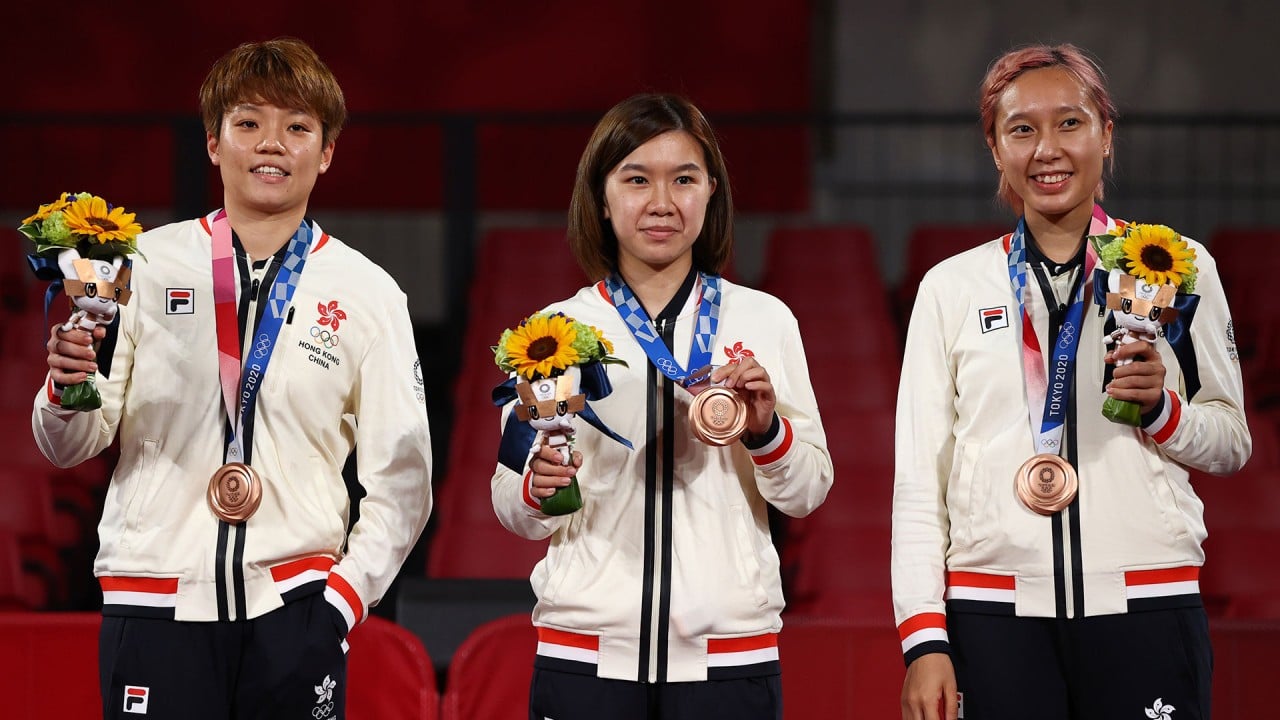
Hong Kong’s Olympic success shows ‘one country, two systems’ is very much alive
- Hong Kong’s participation in the Olympics proves Beijing hasn’t broken all its promises
- Our sports stars have shown that Hongkongers, when left alone in the arenas they have been promised, can deliver
But then along came the Tokyo Olympic Games, and the city’s stellar performance under its own flag rather than the national one, and it’s as if the two were separate entities.
Local pride swelled appreciably with each new medal won; there were deafening cheers for Hongkongers, but there was nary a sound when an athlete from China triumphed.
There was a gold, two silvers and three bronzes, a significantly smaller tally than China’s, but impressive given that the city has only 7.5 million people compared to the 1.4 billion who live on the other side of the Shenzhen River.
We may be part of China but, given such an achievement, Hongkongers have every right to be proud, give spirited support to our home-grown athletes and bask in their glory. That’s what the other part of that “one country, two systems” model of governance, which officials repeatedly contend is still as strong as ever, is supposed to be about.
Having a separate sports team to compete in national, regional and international competitions was one of the agreements made between British and Chinese officials when they were hammering out the arrangements for Hong Kong’s return to China’s rule on July 1, 1997.
The basis was the idea that Beijing should preserve much of what made the city different from the mainland for at least 50 years through ensuring “a high degree of autonomy”, as enshrined in the mini-constitution, the Basic Law.
Among these were its “capitalist system and way of life”, free media and freedom of speech, and judicial independence. There was also a pledge to aim to move towards a political system where most adults would be able to vote and stand for election, with choosing the chief executive in such a manner the goal.
I would suggest that Hong Kong’s participation in the Olympics apart from China proves otherwise. If the opposite was the case, our sports stars would be part of the national team and the medals they won added to China’s tally.
As it was, crowds surrounded giant screens set up in shopping malls as the race began, cheered on the hometown hero to victory and celebrated afterwards.
I doubt there was a thought for China’s Yang Junxuan, who missed out on third place by a mere 0.31 seconds, an even slimmer margin than the Hongkonger had failed to grab the gold by. As harsh as this may be, it is how a number of Hong Kong people believe one country, two system, should function.
National security is, in large part, about nationalism. Beijing wants Hong Kong people to put the country first. Hong Kong people still have a lot to learn about being proud of their country as well as their city.
But as the Games have shown, one country, two systems can work extremely well if Hongkongers are left alone in the arenas they have been promised, to get on with the job themselves.
Peter Kammerer is a senior writer at the Post


